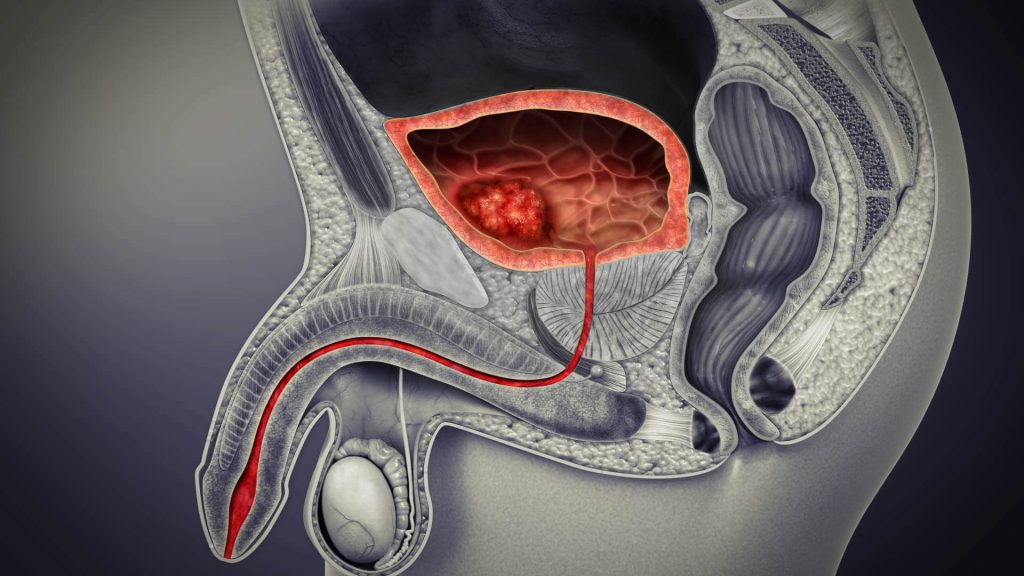
Bladder cancer is one of the most common cancers affecting the urinary system. It typically begins in the urothelial cells lining the inside of the bladder—a hollow organ in the lower abdomen that stores urine. Early detection significantly improves outcomes, making awareness and screening critical.
Incidence: Bladder cancer is the 6th most common cancer in the United States.
Gender: Men are four times more likely to develop bladder cancer than women.
Age: Most cases occur in individuals over the age of 55, with the average age at diagnosis around 73.
Within the United States, there are approximately 82,000 new cases of bladder cancer diagnosed yearly.
Smoking: The leading cause, accounting for more than 50% of cases.
Chemical Exposure: Long-term exposure to industrial chemicals (e.g., in dye, rubber, or leather industries).
Chronic Bladder Irritation: Infections, stones, and long-term catheter use may increase risk.
Family History: Genetics may play a role in a small percentage of cases.
Radiation & Chemotherapy: Past pelvic radiation or use of certain drugs like cyclophosphamide.
Blood in the urine (hematuria) – often painless and intermittent.
Frequent urination or urgency.
Pain or burning sensation during urination.
Pelvic or lower back pain (in more advanced cases).
Note: These symptoms can also be caused by benign conditions like infections or stones. Evaluation by a urologist is essential.
Cystoscopy: Direct visualization of the bladder using a thin camera.
Imaging: CT urogram or ultrasound for detailed internal views.
Biopsy: Tissue sample collection during cystoscopy to confirm diagnosis.
Treatment is personalized based on the type, stage, and grade of the tumor:
Non-Muscle-Invasive (NMIBC):
Transurethral Resection of Bladder Tumor (TURBT)
Intravesical therapy (e.g., BCG, Mitomycin C, Gemcitabine/Docetaxel, Adstiladrin, Anktiva, etc)
Muscle-Invasive (MIBC):
Radical cystectomy (bladder removal) with or without systemic chemotherapy
Bladder-sparing trimodal therapy: Maximal TURBT, Chemotherapy, Radiation
Advanced/Metastatic:
Immunotherapy (e.g., immune checkpoint inhibitors)
Targeted therapies
Bladder cancer has a high recurrence rate, especially in non-invasive forms. Regular follow-up with cystoscopies and urine tests is crucial to monitor for recurrence or progression.When to See a Urologist
If you experience blood in urine, persistent urinary discomfort, or unexplained changes in bladder habits, consult a urologist promptly. Early diagnosis leads to better outcomes and more treatment options.
Whether you’re seeking expert care for a urological condition or looking for a second opinion, we’re here to support you every step of the way. Reach out to schedule an appointment, ask questions, or learn more about personalized, minimally invasive treatment options tailored to your needs.